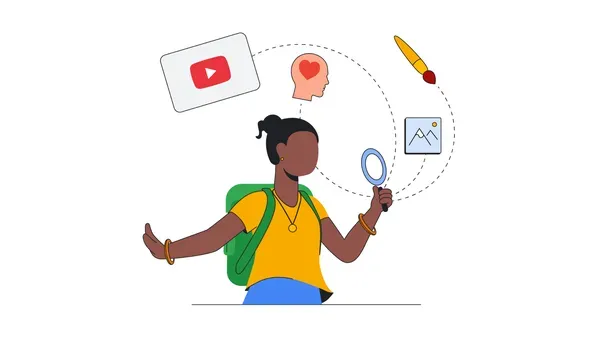Google's latest Future Report surveyed over 7,000 teens across seven EU countries, revealing a striking disconnect between young people's digital aspirations and society's ability to support them. While 40% use AI almost daily for creative problem-solving, they're calling out a critical gap - their teachers simply aren't equipped with the digital literacy skills needed to guide them effectively.
Google just dropped some eye-opening research that cuts through all the noise about banning tech for teens. Their Future Report, based on surveys with over 7,000 teenagers across seven EU countries, paints a completely different picture than what we're hearing from regulators.
While European policymakers debate restrictions and bans, these teens are already deep into the digital world - and they're surprisingly thoughtful about it. The study shows 40% are using AI almost daily, mainly for creative projects and solving problems. But here's the kicker: they're basically teaching themselves because their teachers can't keep up.
"These young participants underline the shared responsibility of society to help them become effective, safe digital citizens," notes Janice Richardson, one of the founders of EU Safer Internet Day and expert to the Council of Europe, who analyzed the report. Richardson sees this as a wake-up call for educators and families struggling with digital challenges.
The teens aren't just passive consumers either. They're developing their own strategies for checking information credibility and showing what Richardson calls "an appreciative level of critical thinking." Surprisingly, they don't seem bothered by algorithms - instead viewing them as tools that help them discover new content and perspectives.
But there's a troubling divide emerging. The research highlights significant digital literacy gaps between different income groups, creating what could become a permanent disadvantage for students from lower-income families. This isn't just about access to devices - it's about having the skills and support to use technology effectively.
What's particularly striking is how these teens view their relationship with parents and authority figures. They actually want parental controls and guidance, but only if it comes with real understanding. They're asking for communication channels to stay open with their parents and for society to step up with better digital education.
The study identified different "user types" among teens - something that should resonate with anyone trying to design educational programs or products for this age group. It's not one-size-fits-all; these kids have vastly different approaches to technology use.
